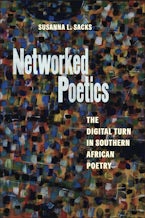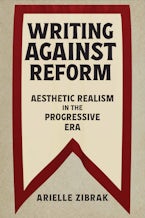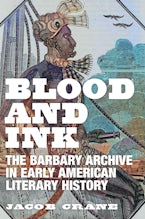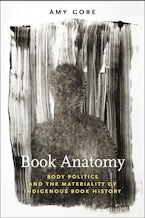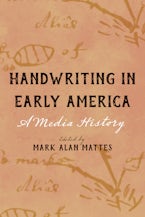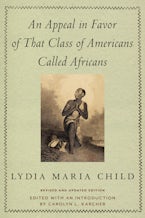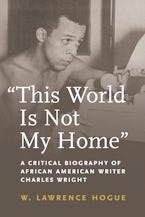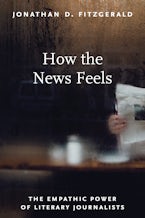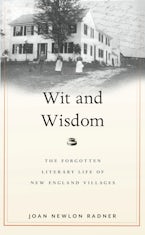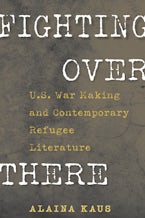- Home
- Studies in Print Culture and the History of the Book
- Teaching the History of the Book
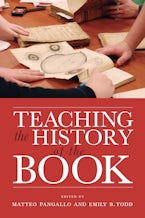
Teaching the History of the Book
Edited by Matteo Pangallo and Emily B. Todd
Published by: University of Massachusetts Press
Series: Studies in Print Culture and the History of the Book
376 Pages, 6.00 x 9.00 x 1.20 in, 4 illus.
Other Retailers:
With original contributions from a diverse range of teachers, scholars, and practitioners in literary studies, history, book arts, library science, language studies, and archives, Teaching the History of the Book is the first collection of its kind dedicated to book history pedagogy. Presenting a variety of methods for teaching book history both as its own subject and as an approach to other material, each chapter describes lessons, courses, and programs centered on the latest and best ways of teaching undergraduate and graduate students.
Expansive and instructive, this volume introduces ways of helping students consider how texts were produced, circulated, and received, with chapters that cover effective ways to organize courses devoted to book history, classroom activities that draw on this subject in other courses, and an overview of selected print and digital tools. Contributors, many of whom are leading figures in the field, utilize their own classroom experiences to bring to life some of the rich possibilities for teaching book history in the twenty-first century.
In addition to the volume editors, contributors include Ryan Cordell, Brigitte Fielder, Barbara Hochman, Leslie Howsam, Matthew Kirschenbaum, Clare Mullaney, Kate Ozment, Leah Price, Jonathan Rose, Jonathan Senchyne, Sarah Wadsworth, and others.
Acknowledgments
Introduction
Matteo Pangallo and Emily B. Todd
PART 1
Conceptualizing the Teaching of Book History
Chapter 1.1
When and Where Did We Start Teaching Book History?
Leslie Howsam
Chapter 1.2
Why We Teach Book History making it relevant Jonathan Rose
Chapter 1.3
Teaching a Feminist Book History
Kate Ozment
Chapter 1.4 Teaching Black Book History
Beginning Outside the Book
Brigitte Fielder and Jonathan Senchyne
Chapter 1.5
The Book in the World
Teaching a Global History of the Book
Frederick Nesta
Chapter 1.6
Programmable Type
The Craft of printing, the Craft of Code
Ryan Cordell
PART 2
Teaching Book History as a Course
Chapter 2.1
Book History in the Making
Mark Alan Mattes, Delinda Buie, and Rachel Singel
Chapter 2.2
Mediating the Student Body
Labor Literacy, and Experiential Learning in the Book History Classroom
Lisa Maruca
Chapter 2.3
The Printed Word Endures
Studying Book History by Making Books
Josef Beery
Chapter 2.4
Teaching the History of Illustrated Texts Broadside Ballads as Early Modern Memes
Molly Hand
Chapter 2.5
Location, Location, Location
Reading Canonical Fiction in Periodical Context
Barbara Hochman
Chapter 2.6
“Race and Publishing in the United States” an Advanced Undergraduate Seminar
Allison Fagan
Chapter 2.7
Old Books and New Scholars
Undergraduate Mentored Reasearch in the Book History Classroom
Jamie Horrocks
Chapter 2.8
The Book History Master’s Degree a Case Study
Tom Mole
Chapter 2.9
The Librarians of Babel
Teaching the History of the Book to Future Professionals
Rebecca Baumann
Chapter 2.10
The Uninhibited Archive
Teaching Book History through Public Exhibition
Alex Mueller and Cheryl Nixon
Chapter 2.11
Using Periodicals Databases in Book History Pedagogy
Christine Woody
Chapter 2.12
Book History Online, or, How I Learned to Stop Worrying and Love the ROM
Matt Carter
PART 3
Using Book History in Other Courses Chapter 3.1
“Who Made This Book?”
Teaching Information Literacy through Book History
Jennifer Newman and Julie Van Peteghem
Chapter 3.2
What Is the Value of a Text?
Harry Potter, G. Thomas Tanselle, and Alibris
Laura Estill
Chapter 3.3
“Brit. Lit. I” from Only One Library
Joshua Eckhardt
Chapter 3.4
Accessibility and Teaching Book History
Clare Mullaney
Chapter 3.5
The History of the Book in/and the New World
George Antony Thomas
Chapter 3.6
Teaching Indigenous and Multiethnic Literature through Book History
Amy Gore
Chapter 3.7
“Through the Windows of This Book”
Teaching Children’s Literature through the History of the Book
Sarah Wadsworth
Chapter 3.8 Gesso, Amatl, and Glyphs
Using Mesoamerican Codices to Teach about the Material Complexities of (digital) Humanities Projects
Nora C. Benedict Chapter 3.9
(Un)Making Texts/(Re)Making Books
Editing in the Undergraduate Classroom
Thomas A. Hamill
Chapter 3.10
Teaching American Women’s Authorship in the American Literature Survey through the History of the Book
Melissa J. Homestead
Chapter 3.11 Rhetoric of the iPhone
A Twenty-First Century Writing Course
Caroline B. Barta
Chapter 3.12
Using Book History in Graduate Book Publishing Programs
Rachel Noorda and Claire Squires
Chapter 3.13 Toni Morrison’s Lorain
Community-based Learning about the History of the Black Book
Jewon Woo
PART 4
Resources for Teaching Book History
Chapter 4.1
The London Rare Books School
Karen Attar
Chapter 4.2 Meet the (Book) Beetle
Teaching with a Table Top Letter Press
Matthew Kirschenbaum, Mallory Haselberger, Britt Starr, and Kari Kraus
Chapter 4.3
The Virtual Printing House
Exploring Early Modern Book Construction with DIY First Folio
Kyle Sebastian Vitale
Chapter 4.4
Digital Resources for Teaching African American Book History
Heidi Morse
Chapter 4.5 Thinking DEEP-ly
The database of Early English Playbooks in the Undergraduate Classroom
Sarah Neville and Natalie Dalea
Chapter 4.6
Teaching with Digital Illustration Resources
Michael John Goodman
Afterword
Book Learning Leah Price
Contributors
Index
MATTEO PANGALLO is associate professor of English at Virginia Commonwealth University.
EMILY B. TODD is dean of the School of Arts and Sciences at Eastern Connecticut State University.
“This well-conceived collection is the first to investigate book history pedagogy itself, and it does so in a generous and inclusive way. It manages to be a comprehensive resource for current pedagogy in book history while also providing ideas and inspiration for future instructors. The editors have done an excellent job in bringing together a wide range of voices and perspectives.”—Shafquat Towheed, coeditor of Reading and the First World War: Readers, Texts, Archives
“This collection, the first of its kind on the teaching of book history, offers a nicely diverse list of contributors, including major scholars who have been involved in this field for a long time.”—Christine Pawley, author of Organizing Women: Home, Work, and the Institutional Infrastructure of Print in Twentieth-Century America

